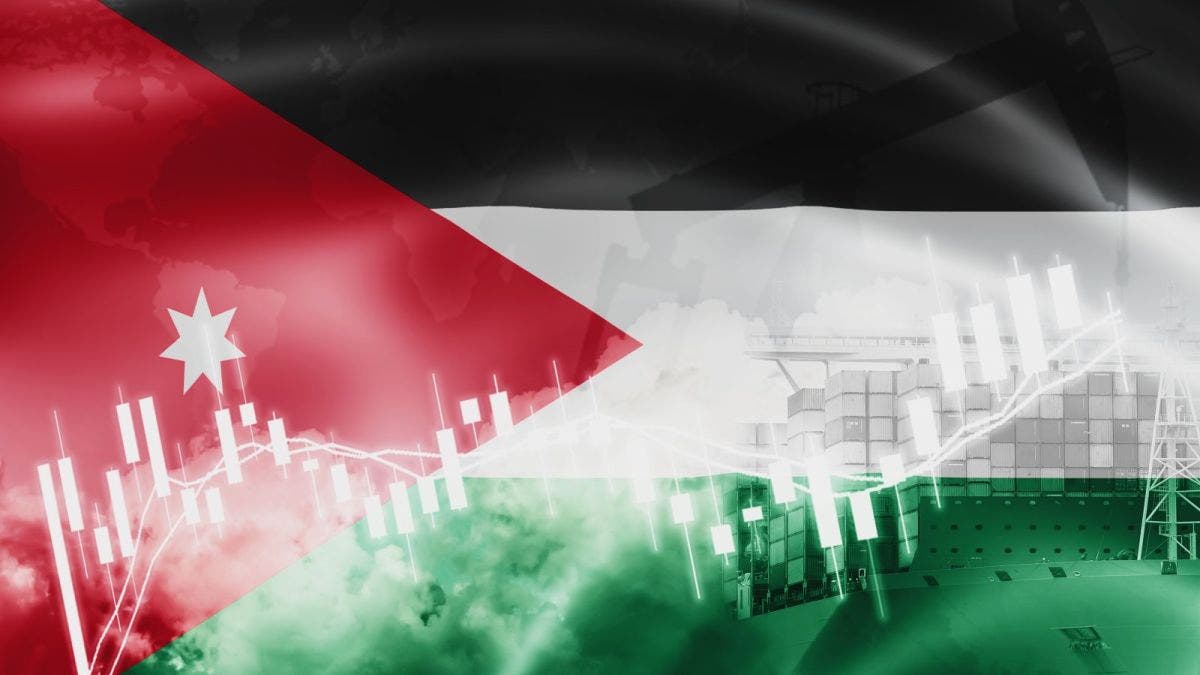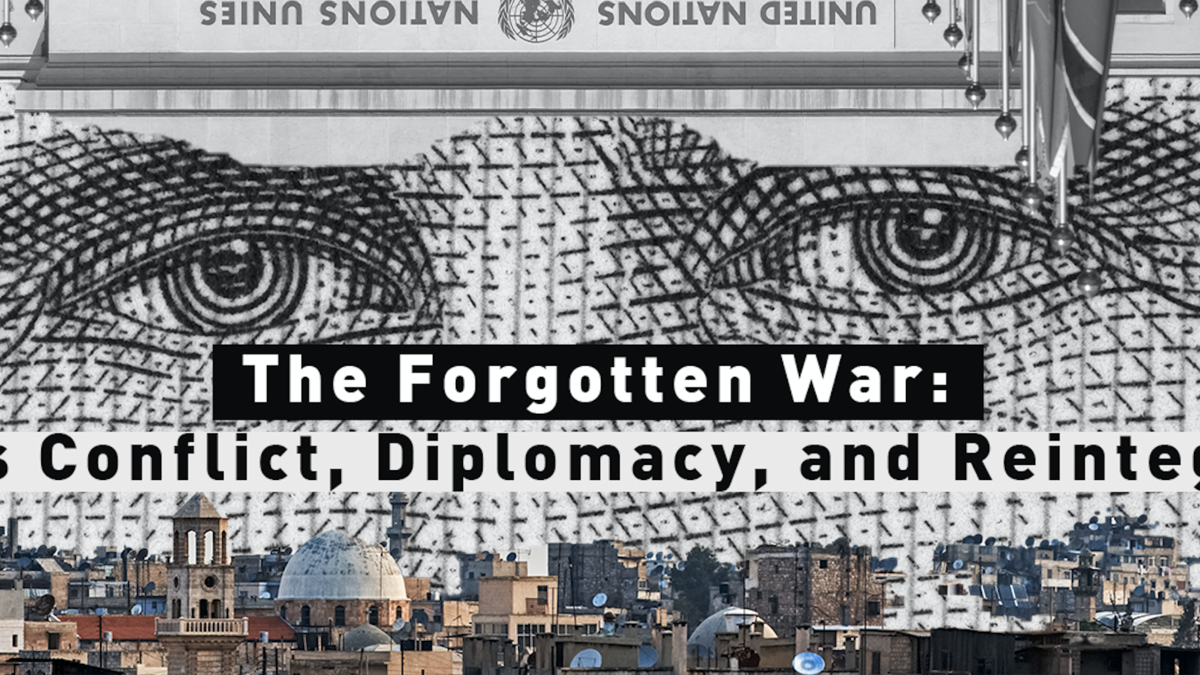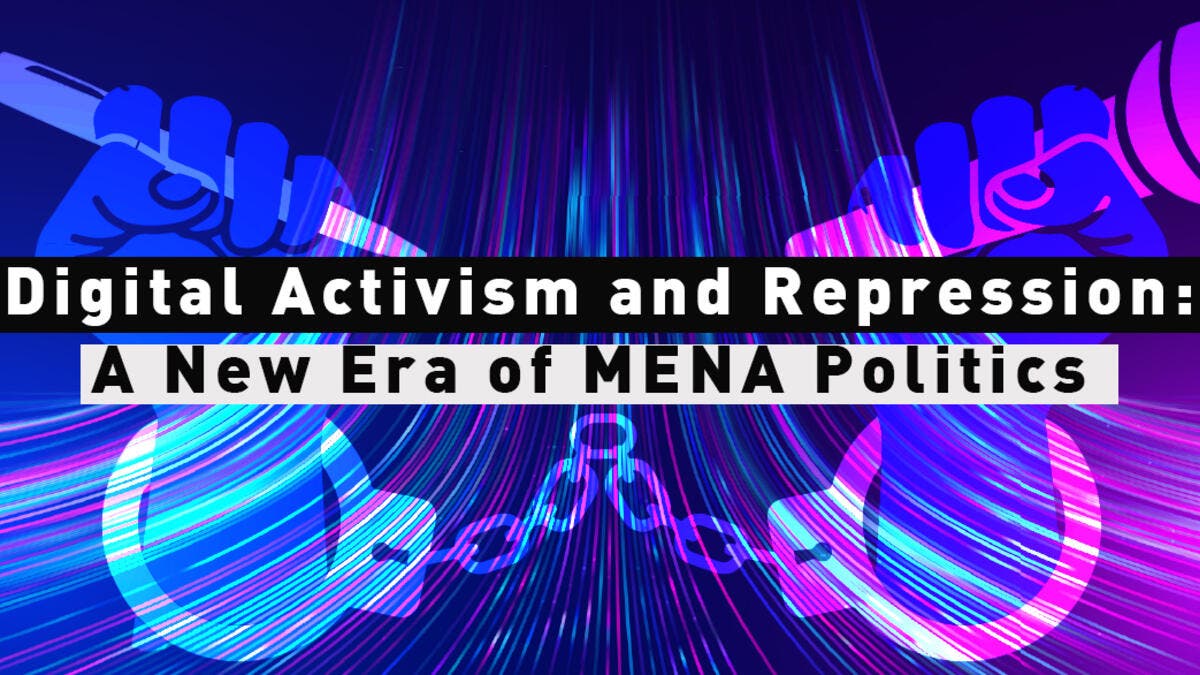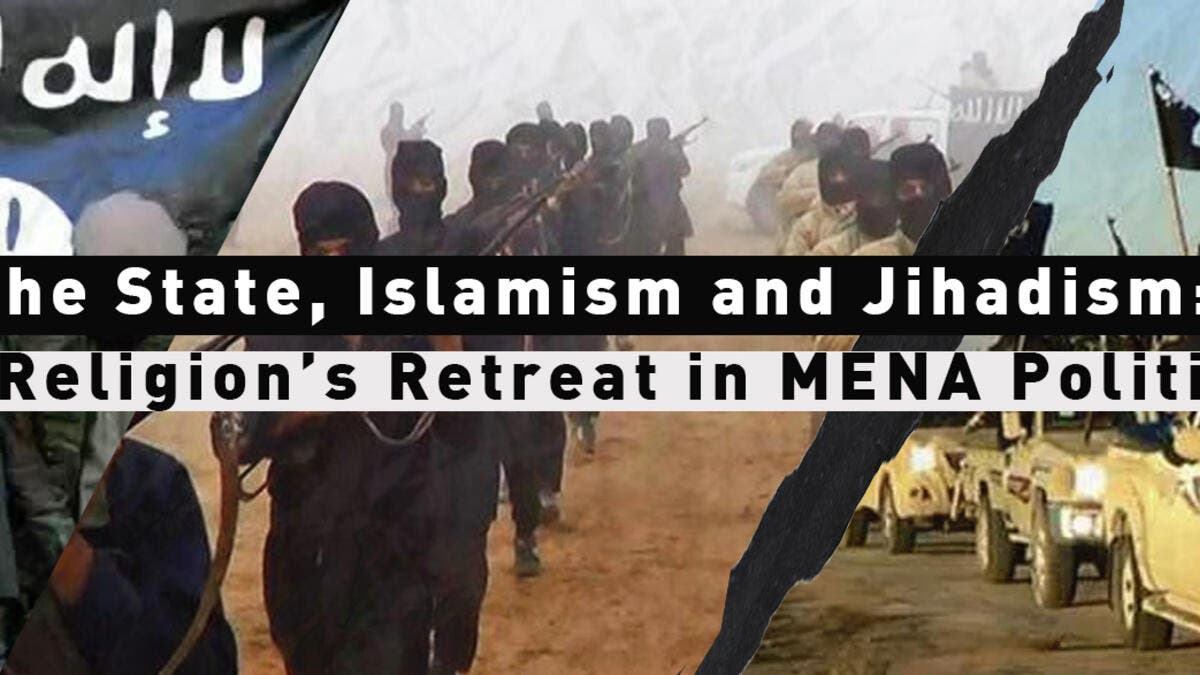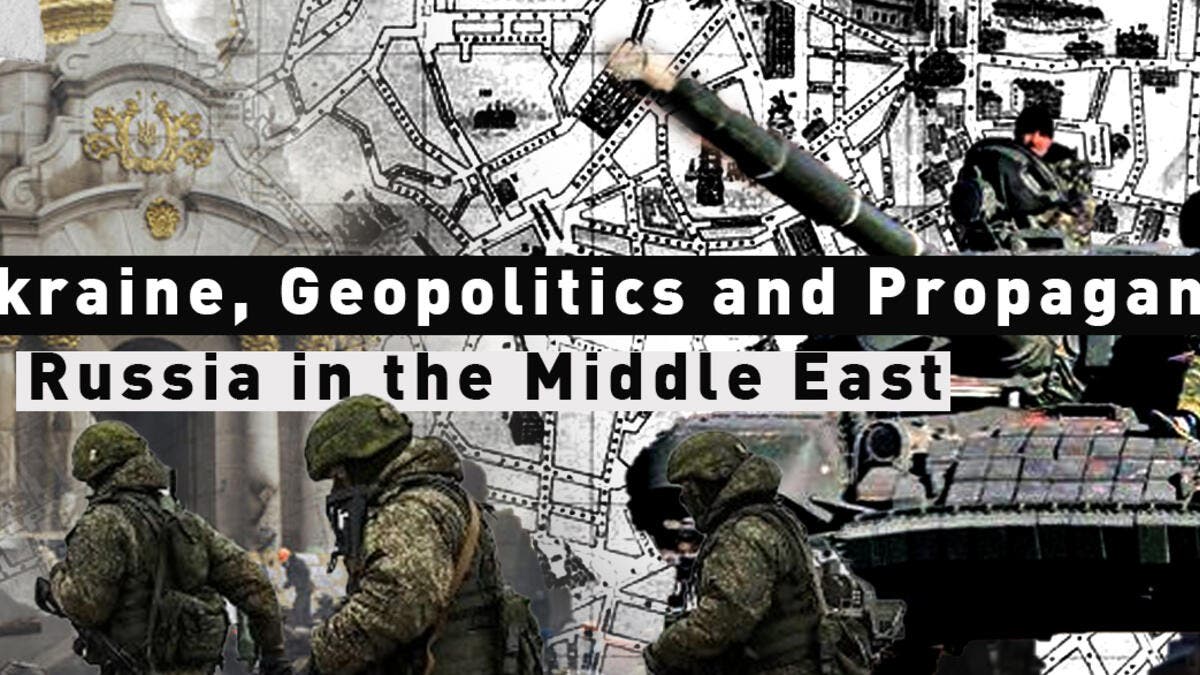
The contrast of the BRICS summit in June with the meeting of G-7 leaders held only a day prior, served as a foretaste of geopolitical competition to come. It won speculation over whether a new geopolitical bloc, even an international order, might finally be finding form.
The summit came ahead of news that several MENA states are expected to be soon welcomed into BRICS. Regardless of whether BRICS lives up to its potential, this news is further indication that the region’s relationship with the West is heading into a wintry chapter as regimes seek to profit from new opportunities in a multipolar world.
Indeed, the competition and conflict redefining geopolitics has also questioned whether realignments are afoot in the Middle East. Developments like regional interest in BRICS and OPEC+ oil cuts suggest that popular belief in MENA neutrality, in what plausibly seems to be a new cold war, merits consideration and even revision.

China's President Xi Jinping (L), India's Prime Minister Narendra Modi (2nd L), Russia's President Vladimir Putin (C), South Africa's President Cyril Ramaphosa (2nd R) and Brazil's President Jair Bolsonaro (R) are pictured before posing for a family picture during the 11th BRICS Summit on November 14, 2019 in Brasilia, Brazil. (Photo by Sergio LIMA / AFP)
BRICS: A New Geopolitical Bloc?
Global economic power has been reclaimed in the 21st century. The establishment of BRICS in 2006 is a testament to this seismic shift on the world stage. The organisation is membered by industrialised developing countries with emerging economies: Brazil, Russia, India, China, and South Africa.
Representing 23% of the global economy, 18% of global trade, and a combined gross domestic product akin to that of the US, BRICS possesses immense economic power. When the first summit was held, the organisation’s initial goals were modest and focused on investment. But amid the shifting tides of geopolitics, and the concentrated and accruing economic power of BRICS, it bears the hallmarks of a new geopolitical bloc.
Representing 23% of the global economy, 18% of global trade, and a combined gross domestic product akin to that of the US, BRICS possesses immense economic power.
In reality, the potential of BRICS rests on the dazzling rise of China’s economy. China’s GDP is more than double that of the other four BRICS members: almost $18 trillion compared with Brazil ($1.6 trillion), Russia ($1.8 trillion), India ($3.2 trillion) and South Africa ($400 billion). Without China, the organisation would fade into irrelevance; with China, its economic clout, and so potential to exercise geopolitical power, is vast.
As observed in Forbes: “If intra-BRICS commodity trade were to be settled in a commodity-linked basket of currencies among members as well as willing non-members, it would constitute an effective end to the petrodollar, a key pillar of the G7-led global financial system.” The strong resistance of the Russian ruble to Western sanctions - reaping reward from global energy prices – has boosted confidence in this aspiration.
In reality, the potential of BRICS rests on the dazzling rise of China’s economy. China’s GDP is more than double that of the other four BRICS members
President Putin even proposed at the recent BRICS summit the creation of an "international reserve currency based on the basket of currencies of our countries” to counterweight US hegemony in the IMF. The desire to create an economic order removed from the US-led dominated one has gained impetus as Russia and its allies have been disturbed by the velocity of Western-sanctions, from which they seek permanent protection and relief.
At the outset of war this year, intra-BRICS trade suddenly won significant sway over oil geopolitics through Western-sanctioned Russian crude oil exports being snapped up by the likes of China, India and Brazil. These purchases have offered welcome relief to the Russian economy and its military expenditures, softening the bite of Western sanctions (including the recently announced policy of capping prices on Russia’s oil exports).
The attendance of President Putin at its virtual summit in June was a jarring reminder to the West of how its mood of anger and reproach not shared universally; for most governments, ethical concerns about Russia’s violence do not eclipse the strategic value of Moscow’s energy and economic deals (hence why Western aims to blackball Russia on the world stage yields only limited success).
intra-BRICS trade suddenly won significant sway over oil geopolitics through Western-sanctioned Russian crude oil exports being snapped up by the likes of China, India and Brazil
By opting to remove Russia from the international economic system, the process of deglobalisation – hastened by the Covid-19 pandemic – assumed new intensity; with its promise of straining geopolitical tensions even further, BRICS is another symptom of this global trend. The consolidation of the organisation could define two dominant blocks in geopolitics, although many countries will resist this simplified division in preference for the strategic rewards of neutrality.
In which case, the symbiosis between the main economies – the US, China, the EU, but so too emerging ones like Brazil and India – which has been a major determinant of stability in world politics for decades, could falter with competition. Moreover, the deepening rift between G-7 countries and BRICS questions how, for example, cooperative climate action might be possible going forward? It foreshadows a fraught future for multilateralism. But such views are based on the idea that BRICS will decisively shift from an economic club into a coherent political organisation. There is some scepticism over whether BRICS members have the ability to reach a level of cohesion which would permit united political action.
BRICS has little to show for itself apart from the New Development Bank, established to offer an alternative to the World Bank for emerging economies.
A decade ago, a panel at the Wilson Centre strongly agreed that the differences between the group – namely, trajectories of economic growth and ideological principles – far outweighed commonalities. Anti-Westernism alone is an insufficient ingredient to build and sustain cohesion amongst diverse actors. It is also true that since its birth, BRICS has little to show for itself apart from the New Development Bank, established to offer an alternative to the World Bank for emerging economies.
The institutionalisation of BRICS remains therefore weak. Nonetheless, news of its expansive ambitions makes such criticisms now seem tenuous. As BRICS members hunt for a credible alternative to the US-led global order with increasing zeal, the organisation could demonstrate in the coming years that it counts for much more than an empty acronym.

AFP File Photo
BRICS, the Middle East, and the West
With war in Ukraine squeezing and shaping world politics, competition between the West and its rivals gained definition. In this context, BRICS – Brazil, Russia, India, China, and South Africa – has naturally sought to build up the organisation’s membership.
MENA countries have been among those touted as potential members in the near future. The president of the BRICS International Forum announced that he expects Turkey, Egypt and Saudi Arabia to join the group "very soon". BRICS has caught the interest of other MENA countries who might follow suit; in November came news that Algeria had officially applied to join the organisation. The organisation, which has called up speculation as to whether it might qualify as a new geopolitical bloc, seeks to recruit “node” countries of strategic location and economic power.
If BRICS members wish to present the organisation as a credible alternative to the US-led economic order, it needs to co-opt as much of the world economy as possible. The inclusion of the three countries would represent an important win for BRICS and further address the lop-sided distribution of economic power between the West and the Rest: Saudi Arabia with its vast energy reserves, Turkey through its location and economic growth, and the UAE as a global centre of commerce and finance (the inclusion of key commercial and logistical centres within the group would offer more control over world trade).
The organisation, which has called up speculation as to whether it might qualify as a new geopolitical bloc, seeks to recruit “node” countries of strategic location and economic power.
In particular, bringing in oil-producing states, like Saudi Arabia, into the fold would consolidate BRICS’s control over global oil production itself – whose value in geopolitics has been laid bare this year since Russia invaded Ukraine. From a regional perspective, the incentives for joining BRICS are building and the interest expressed by Saudi Arabia, amongst others, has come as little surprise.
Many in the region likely deem it short-sighted to avoid the potential benefits which BRICS, taut with economic/political power and potential, might afford them; in a world retreating to multipolarity, MENA regimes are united in their desire to exploit and exhaust new opportunities. BRICS membership from a regional perspective, therefore, presents a tantalising prospect.
Despite its vast wealth and intimate security relations with the US, Saudi Arabia seeks to grow interactions with China and other emerging economies, given the demands of its restless economy in transformation. But economic interests are only part of the appeal; strategic considerations of geopolitics play a decisive role too. States like Saudi Arabia are presently reassessing who exactly are and are not their allies.
The cooperation of China and other BRICS members, like Russia and India, represent a welcome antidote for MENA countries to their fussy relations with the West. Indeed, it was symbolic that news of Saudi Arabia’s interest in membership of the BRICS group arrived just ahead of President Biden’s visit to the Middle East in July.
economic interests are only part of the appeal; strategic considerations of geopolitics play a decisive role too. States like Saudi Arabia are presently reassessing who exactly are and are not their allies.
This economic and geopolitical logic is also shared by Turkey and Egypt; however, although the West may regard the accession of countries like Egypt to BRICS as evidence of strategic realignment, some argue that it is more plausible to see it as a natural continuation of foreign policies defined by the principle of balanced international relations. At the same time, suggestions that BRICS represents an attempt to refashion the 1956 Non-Aligned Movement, whose members sought to minimise the Cold War’s interruptions behind a shield of neutrality, ignores its membership’s antipathy to the West.
BRICS seeks to develop and define a credible alternative to the US-led global economy – and particularly the US dollar. With the economic isolation of Russia, MENA regimes have been reminded of the heavy consequences when states fall foul of Washington, and the appeal of an alternative. Western sanctions have stifled many regimes in contemporary history, like those of Iraq, Syria, Libya, and Sudan. A new economic system out of the thumb of the West would enable MENA regimes in order to indulge their strategic whims with less consequence.

Saudi Crown Prince Mohammed bin Salman (R) shaking hands with Chinese President Xi Jinping during a GCC-China Summit in the Saudi capital Riyadh, on December 9, 2022. (Photo by SPA/AFP)
Middle Eastern Realignment in a Multipolar Order?
Moscow’s efforts to marshal diplomatic support for its invasion of Ukraine might seem to undercut claims of geopolitical reshuffle in the region; despite some hesitation, a U.N. resolution condemning Russia in March was supported by Saudi Arabia, the UAE, and Egypt.
But this incidence of the region rhetorically aligning with the West has proved anomalous in 2022, a year which has been defined more by tension than cooperation. This condemnation has not translated into support for Western sanctions. Like much of the non-Western world, MENA states are not moved by and even deeply suspicious of Western efforts to preserve a rule-based order.
High-minded Western words about ideas of democracy and freedom are far less appealing to MENA autocracies than the respectful and predictable indifference of Russia and China; the anti-Westernism which courses through the region is shared by its regimes too, ever indignant at the meddling in and criticism of their internal affairs by Western countries.
In Washington today, there is considerable animus towards Riyadh since it took a collective decision with its OPEC counterparts to raise global oil prices by announcing its largest supply cut in years – coolly rebuffing the pleas by the Biden administration.
The Biden’s administration’s resolve to renew democracy worldwide is a continually raw reminder to MENA leaders of their ideological friction with the West. This reality was encapsulated in recent months in Western fury about Qatar’s hosting of the World Cup (which, ironically, may be regarded as the best World Cup tournament ever after such a dazzling final).
The controversy surrounding OPEC has led to the further perishing of US-Saudi Arabia relations. In Washington today, there is considerable animus towards Riyadh since it took a collective decision with its OPEC counterparts to raise global oil prices by announcing its largest supply cut in years – coolly rebuffing the pleas by the Biden administration. Consequently, there is now a growing and plausible view in the US that Saudi Arabia is no longer an ally given its decision to blunt the punitive action of the West against Russia.
As the shadows of competition are thrown further across the Middle East, policy makers on both sides of the geopolitical division are carefully observing the initial reactions of regional regimes when taking stock of their friends and adversaries “It’s clear that OPEC+ is aligning with Russia” retorted a wounded White House when the decision was taken in October, directing the criticism at its long-standing ally in the Gulf.
Suggestions that Saudi Arabia may be sidling up to Russia on a political footing has been treated with scorn by commentators, whose main criticism is that this position is too binary. “The Saudis weren’t thinking about Ukraine – like many people in Asia and Africa, they don’t think in absolute terms of being pro- or anti-Russian,” wrote Hussein Ibish, senior resident scholar at the Arab Gulf States Institute in Washington.
The desire to engage more with organisations like BRICS, so the argument proceeds, does not amount to a rejection of the West but represents the desire of Riyadh (and Cairo, Ankara, and Algiers) to strategically plant its feet on both sides of the geopolitical divide. By doing so, MENA states seek to maximise the benefits of geopolitical competition, minimise its consequences, and evade its constraints.
There is a popular perception that every time the US does not get its way in the Middle East, Washington vainly misreads this as a snub; that the US fails to understand that decisions and policies can occur with little consideration of it. And there is some truth to this view. However, the divergences between the US and MENA states on vital issues in US foreign policy are stacking up.
Whatever the intentions, the action of MENA countries in OPEC+ is not neutral; on the contrary, they have adopted a policy supportive of Russia on the defining geopolitical issue of 2022
Whatever the intentions, the action of MENA countries in OPEC+ is not neutral; on the contrary, they have adopted a policy supportive of Russia on the defining geopolitical issue of 2022. And on other key divisions of contemporary geopolitics – like sovereignty in Taiwan – Arab governments have embraced Beijing’s position. Now with tacit support for Russia through OPEC in the Gulf, in addition to support for China’s repression in Xinjiang and Hong Kong, the Middle East is sharply opposed to the US and wider West on the essential geopolitical issues of today and tomorrow.
Only this month, President Xi was honoured by Arab leaders in Saudi Arabia, serving as further evidence to some that MENA states are eyeing alternatives to the “liberal world order,” regarding China’s authoritarianism as a more natural ally given their own politics. Saudi officials insisted that the generous reception of Xi is perfectly suitable for a state as powerful as China; yet its timing brimmed with geopolitical symbolism and was credibly seen as a rebuke to the US given its contrast with the wintry welcome which met Biden in July.

Sergio LIMA / AFP(L to R) South Africa's President Cyril Ramaphosa, India's Prime Minister Narendra Modi, China's President Xi Jinping, Russia's President Vladimir Putin, Brazil's President Jair Bolsonaro at the 11th BRICS Summit, Brasilia, Brazil, November 14, 2019.
New Friends and Foes
A feeling of change hangs over MENA geopolitics as wider international dynamics evolve. Many commentators and scholars have been rightly dismissing simplistic readings of this change which talk of the emergence of well-defined boundaries and blocs; they remind audiences of the banal but important fact that geopolitics resists crude simplifications (whose consequences in policy making were painfully present and predictable in the Cold War of the last century).
there is a growing and tangible dislocation between the region and the West.
Despite this wisdom, there is also a risk that such commentary becomes too focused on teasing out nuance while failing to see the woods from the trees. Whether shown by news of BRICS pulling new membership from the Middle East, or by Gulf leaders humiliating President Biden over oil production, there is a growing and tangible dislocation between the region and the West.
Talk of neutrality and the need to avoid simplifications may prevail for the time being in policy chatter, but the sense of striking geopolitical shift – even realignment – in the Middle East is gathering credibility. For as the geopolitical crises of the 21st century continue to fall thick and fast, the West and their supposed allies from the region are likely to repeatedly find themselves on opposing sides of the geopolitical divide.
The views expressed in this article do not necessarily reflect those of Al Bawaba News.



